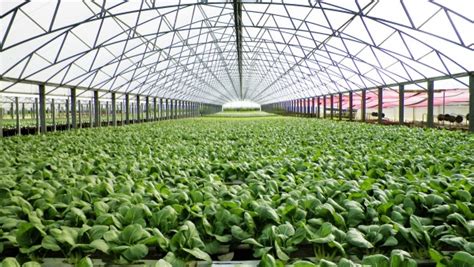As the world grapples with the challenges of climate change, food security, and sustainable development, innovative farming techniques have become essential for meeting the increasing demand for fresh produce while minimizing environmental impact. Farm tech greenhouses have emerged as a game-changer in this pursuit, offering a promising solution for sustainable farming practices. In this article, we will delve into the seven ways farm tech greenhouses revolutionize sustainable farming, making them an attractive option for farmers, investors, and environmentally conscious consumers alike.
The Rise of Farm Tech Greenhouses
Farm tech greenhouses, also known as high-tech or smart greenhouses, are designed to optimize crop yields while reducing waste, conserving resources, and promoting eco-friendly practices. These advanced greenhouses integrate cutting-edge technologies, such as artificial intelligence, the Internet of Things (IoT), and data analytics, to create a controlled environment that simulates optimal growing conditions for a wide range of crops.

1. Increased Crop Yields and Reduced Waste
Farm tech greenhouses employ advanced hydroponics, aeroponics, and LED lighting systems to provide optimal growing conditions for crops. These systems enable farmers to control temperature, humidity, and nutrient levels with precision, resulting in increased crop yields and reduced waste. By optimizing growing conditions, farmers can reduce crop losses due to disease, pests, and environmental stressors.
2. Water Conservation and Efficient Irrigation
Farm tech greenhouses are designed to conserve water and reduce waste through efficient irrigation systems. Advanced sensors and data analytics enable farmers to monitor soil moisture levels, detect leaks, and adjust irrigation schedules in real-time. This approach ensures that crops receive the right amount of water at the right time, minimizing waste and reducing the environmental impact of farming.
3. Reduced Energy Consumption and Carbon Footprint
Farm tech greenhouses incorporate energy-efficient systems, such as solar panels, geothermal energy, and advanced insulation materials, to reduce energy consumption and carbon emissions. By leveraging natural light and heat, farmers can minimize their reliance on artificial lighting and heating systems, resulting in a lower carbon footprint.

4. Improved Crop Quality and Reduced Chemical Use
Farm tech greenhouses enable farmers to grow crops in a controlled environment, free from pests, diseases, and chemical pollutants. Advanced monitoring systems and data analytics help farmers detect potential issues before they become major problems, reducing the need for chemical pesticides and fertilizers. This approach results in higher-quality crops that are safer for human consumption and more environmentally friendly.
5. Enhanced Food Safety and Security
Farm tech greenhouses provide a secure and controlled environment for growing crops, reducing the risk of contamination and ensuring a consistent supply of fresh produce. Advanced monitoring systems and data analytics enable farmers to track crop health, detect potential issues, and respond quickly to any problems that may arise. This approach enhances food safety and security, giving consumers peace of mind and confidence in the quality of their food.
6. Increased Efficiency and Reduced Labor Costs
Farm tech greenhouses are designed to optimize labor efficiency and reduce costs. Advanced automation systems, such as robotic farming and precision agriculture, enable farmers to monitor and control crops remotely, reducing the need for manual labor. This approach increases efficiency, reduces labor costs, and enables farmers to focus on higher-value tasks.

7. Scalability and Replicability
Farm tech greenhouses are designed to be scalable and replicable, making them an attractive option for large-scale farming operations and urban agriculture projects. Advanced technologies and data analytics enable farmers to optimize growing conditions, reduce waste, and improve crop yields, regardless of the size or location of the farm.
In conclusion, farm tech greenhouses offer a promising solution for sustainable farming practices, enabling farmers to increase crop yields, reduce waste, conserve resources, and promote eco-friendly practices. As the world grapples with the challenges of climate change, food security, and sustainable development, innovative farming techniques like farm tech greenhouses are essential for meeting the increasing demand for fresh produce while minimizing environmental impact.
Share Your Thoughts
We would love to hear your thoughts on farm tech greenhouses and their potential to revolutionize sustainable farming practices. Share your comments, questions, or experiences with us, and let's continue the conversation on sustainable agriculture and innovative farming techniques.
Gallery of Farm Tech Greenhouses






FAQ Section
What is a farm tech greenhouse?
+A farm tech greenhouse is a type of greenhouse that uses advanced technologies, such as artificial intelligence, IoT, and data analytics, to optimize crop yields and reduce waste.
What are the benefits of farm tech greenhouses?
+Farm tech greenhouses offer several benefits, including increased crop yields, reduced waste, improved crop quality, and enhanced food safety and security.
How do farm tech greenhouses conserve water?
+Farm tech greenhouses use advanced irrigation systems and sensors to monitor soil moisture levels and detect leaks, reducing water waste and conserving this precious resource.
